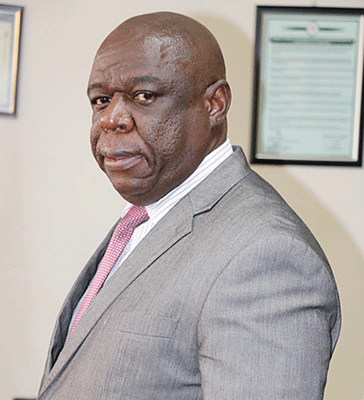
THIS article seeks to respond to the article by one Tendai Nyikavanhu on page 11 of the NewsDay of November 12, 2020.
guest column:Kennedy Chokuda
The article makes a number of unsubstantiated innuendos about the independence of the programmes of Parliament.
This article is not about the merits or demerits of the petition and hence will not address those.
It will simply seek to address the issues raised in the article relating to Parliament that we found to be inaccurate and misplaced. The article begins by acknowledging Nyikavanhu’s right to his opinions and to disseminate them.
In the same vein he also has an obligation to state his case in a factual and objective manner for the sake of informed debate on the issues at hand.
It is trite to state that Parliament is a creature of the Constitution and operates within the confines of the law.
The current petition is rightly before Parliament in terms of section 149 which extends to the public the right to petition Parliament. Section 149(1) states: “Every citizen and permanent resident of Zimbabwe has a right to petition Parliament to consider any matter within its authority, including the enactment, amendment or repeal of legislation’.
- Chamisa under fire over US$120K donation
- Mavhunga puts DeMbare into Chibuku quarterfinals
- Pension funds bet on Cabora Bassa oilfields
- Councils defy govt fire tender directive
Keep Reading
Additionally, section 149(2) provides as follows “the manner in which petitions are to be presented to Parliament, and the action that Parliament is to take on presentation of a petition, must be prescribed in Standing Orders.” Flowing from the above constitutional provisions, Parliament has a comprehensive petition procedure to guide the handling of petitions in Appendix D of its standing orders. That appendix provides, amongst others, that for a petition to be admissible it should meet the following:
Must be submitted by citizens or permanent residents of Zimbabwe,
In the case of juristic persons, it must state the names of the people or groups of people behind the petition,
State the source of funding of the organisation, and,
The prayer of the petition must be within the ambit of things that are within the jurisdiction of Parliament.
The current petition was examined in terms of its compliance with requirements and was found admissible and hence was referred to the relevant committee. It is important for the information of the public to state that, as a result of section 149 of the Constitution, Parliament is inundated with petitions from the public in their individual and collective capacity. To date, Parliament has received 83 petitions from the public in line with the above provisions of the Constitution. 32 of those petitions were deemed inadmissible because they did not meet the procedural requirements of Parliament. The petitions submitted cover a range of issues including social services such as the provision of water, service delivery by State institutions, unfair labour practices and environmental issues. The petition in question is before the Portfolio Committee on Health and Child Care and the Thematic Committee on HIV and Aids having satisfied the procedural requirements. The two committees are holding public hearings on the petition in line with section 141(1) of the Constitution which enjoins Parliament to “facilitate public involvement in its legislative and other processes and in the processes of its committees”.The idea is for the committees to get input from the public on the contents of the petition and its prayer as the issues raised in the petition are of great public interest. It is from the input from the public that the committees will prepare a report to be tabled in Parliament for debate. It is the Houses that will adopt or reject there commendations of the committees. As reported by ZTV on Wednesday November 11, 2020 during News Hour, the petition has received divergent responses from the public. It is this input that will inform the committee report. It is, therefore, incorrect and downright mischievous to allege that“…Parliament is part of the broad political and social strategy to rupture the country’s fabric and social structure”.
Parliament is simply undertaking its mandate as provided by the Constitution and will pronounce itself on the matter in due course. It is presumptuous and preposterous to assume that the 350 Members of Parliament with the diversity of their backgrounds and religious beliefs would have the same mindset on this matter. Nothing could be further from the truth. I will not pre-empt the debates in Parliament on the matter but I am very positive that the debates will indeed confirm the divergent views coming from the public on the matter. It is not a secret that Parliament just like other organs of the State receives funding from development partners. Indeed, the funding that Parliament receives from the United Nations Development Programme comes in the context of the Zimbabwe United Nations Development Assistance Framework (ZUNDAF) signed with the government of Zimbabwe. In addition,funding by development partners to Parliament is directed to activities that are identified by Parliament in terms of its 2018-2023 Institutional strategic plan.
This is a strategic plan developed and owned by Parliament and is the departure point for any support to Parliament. Parliament is very much alive to the potential challenges posed by unsolicited funding and support. As such, the institution has in place a robust Resource Mobilisation Strategy (RMS) that guides its interactions with any development partners as well as memoranda of understanding (MoUs)that determine the scope and nature of co-operation with development partners.











